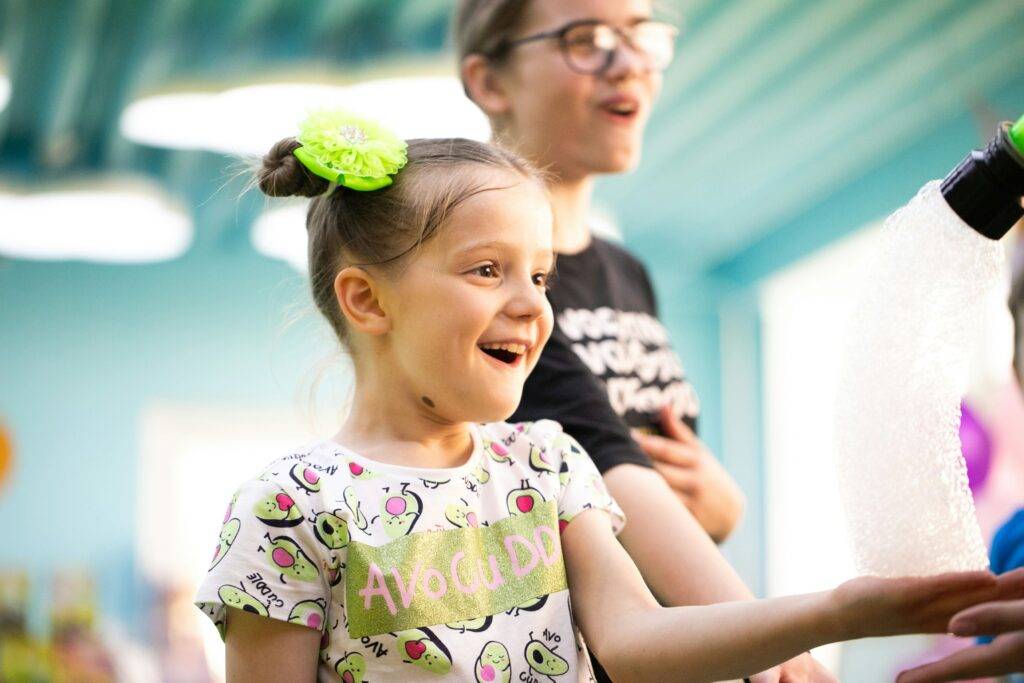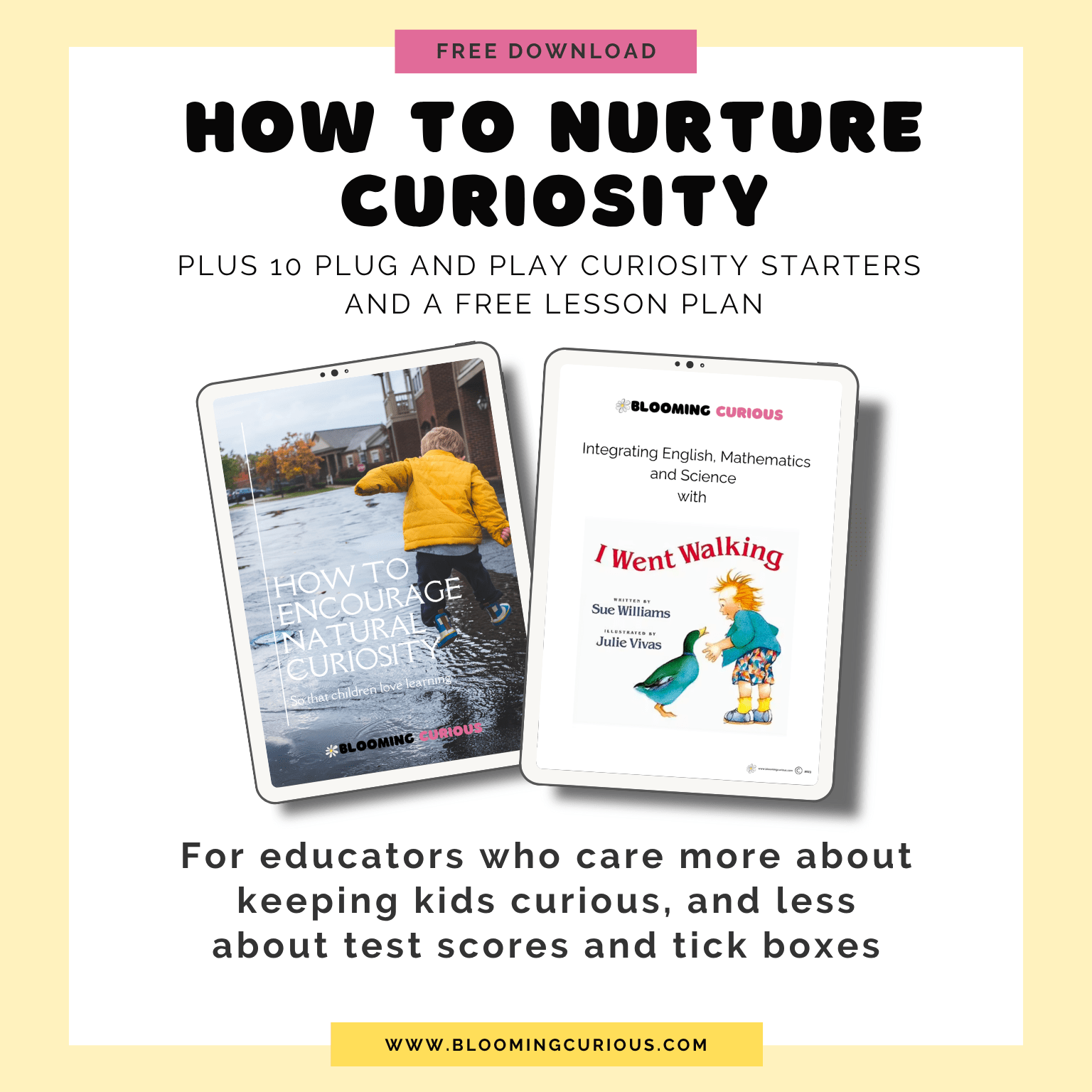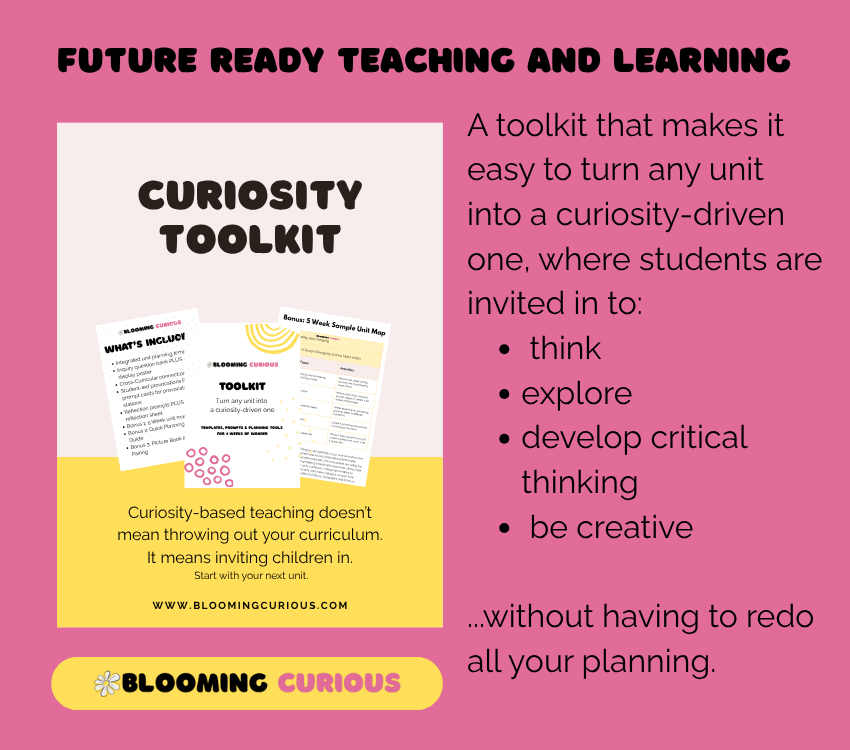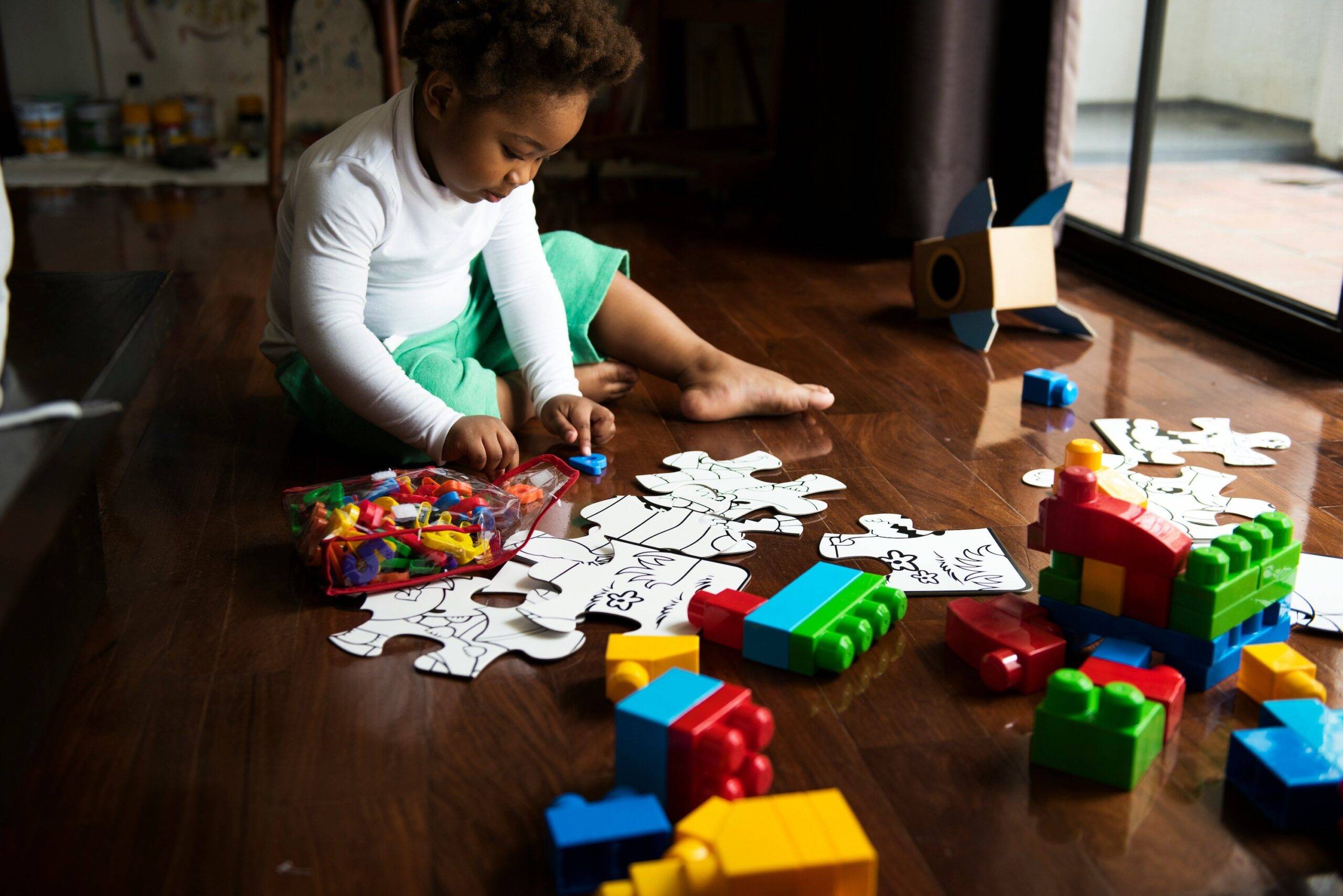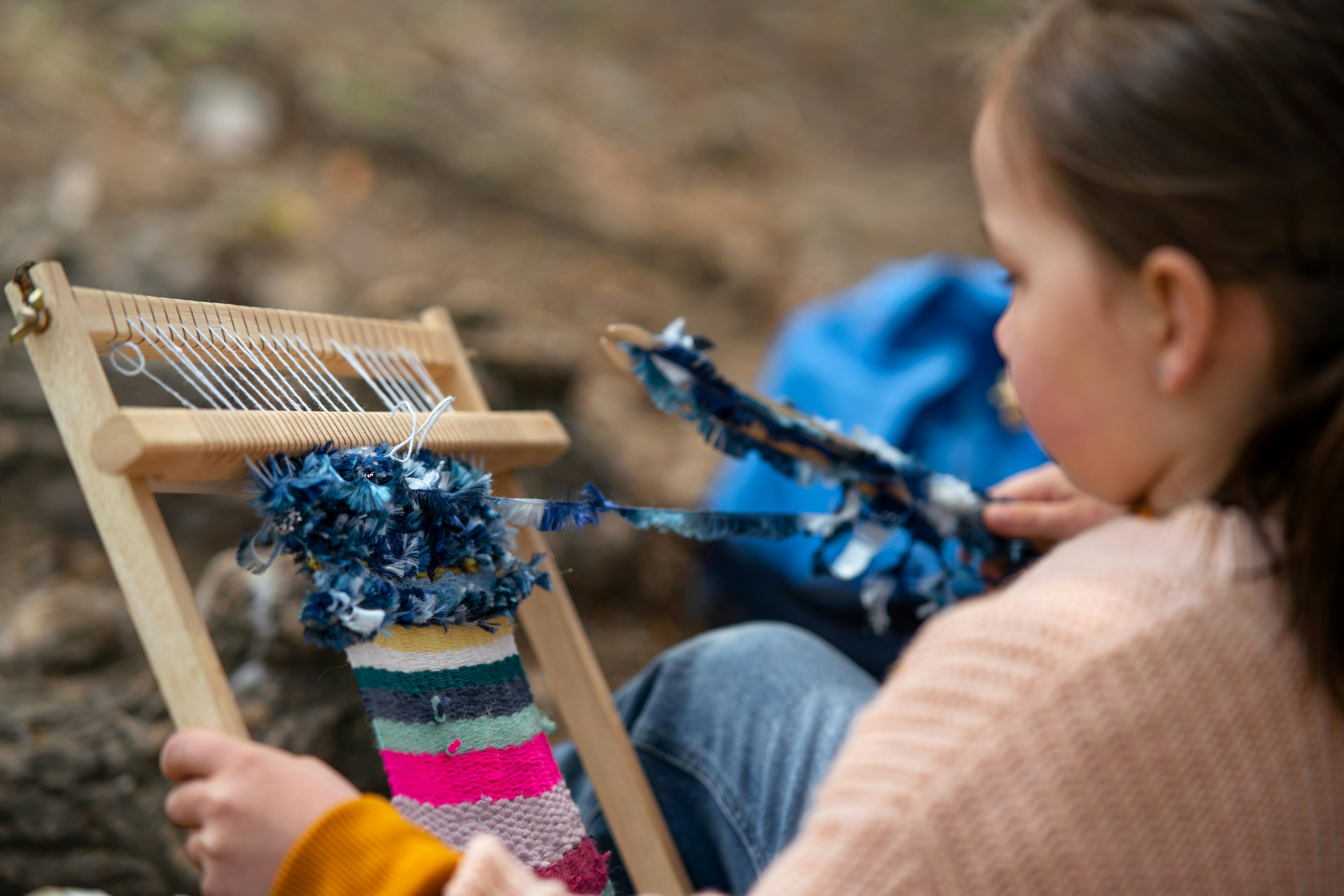Some of the links below may be affiliate links. This means that, at zero cost to you, I will earn an affiliate commission if you click through the link and finalise a purchase. All product recommendations are products that I have used and loved, or products that I would recommend based on experience.
Curiosity drives every human to learn and explore, and make sense of the world around them. One could argue that curiosity is THE trait that future proofs learning. Without it, we are boring, empty shells without any drive for learning or discovery.
Without curiosity we would not have electricity, telecommunication, vehicles for travelling in either by land, sea and air, never mind outer space! Curiosity drives all invention, creativity and knowledge.
Now here in 2025, with all the inventions and technologies at our finger tips…the very things that curiosity created, sadly it appears children are becoming less curious! When we place pre programmed technology in front of children, they simply consume it, there is no need to invent their own entertainment. When children entertain themselves, when they invent games during their play, when they build block structures or even take on pretend play roles, their curiosity is being developed.
It’s that curiosity during play and interaction with others, that develops their decision making skills, their creative problem solving skills, their cooperation skills, and opens their minds to new possibilities and new knowledge about the world around them.
This is fundamentally awe and wonder at work being driven by curiosity!
The industrialised model of schooling has been very successful at preparing people for jobs in the workforce – factory workers, clerical workers, teachers, and any other job that requires the regurgitation of facts, or the following of a set of commands. Unfortunately, the world has changed, and so have the types of jobs for the future. So now the question we have to ask is, “Is education still doing a great job of preparing children for a new type of future?” The answer is obviously “No!”
With the Industrial Revolution behind us, it’s clear that we now have to prepare children for the Digital Revolution.
What skills do children need for the future?
- Phase 1 (2015-19) was based on “what” questions. What kinds of competencies would students need to thrive in the future?
- Phase 2 (2019 and beyond), focused on “how” questions – how to design learning that will nurture these competencies.
Through their work the OECD made it clear that for individuals to thrive in this new digital future we need to recognise what computers and AI are good at and what its not good at. Computers are good at routine manual, non-routine manual and routine cognitive tasks, while they are not as good as we are (YET?!) at abstract tasks, tasks requiring complex contextual information and tasks requiring ethical judgements.
This begs the question, “Why are schools and teachers still teaching to an industrialised model of rote and routine learning when clearly we need to be focusing on the dispositions that will allow us to thrive in a digital age where computers can do those routine tasks?
Changes to education for 21st Century learning
Schools are no longer seen as closed systems, but are increasingly seen as part of a larger eco system where they are collaborating with outside stakeholders like businesses, universities, community organisations where both students and teachers are becoming more aligned with the critical skills that actual 21st Century jobs require. These schools have started adapting and have realised that curriculum cannot be linear and static, but rather dynamic, flexible and personal to the individual student. They are moving away from the standardised path and are instead focusing on students’ unique talents so that all children can meet their full potential.
Of course with this shift of schools becoming part of a larger eco system where community plays an increasingly larger role, it means that all stakeholders have a responsibility in a students’ education, including the student themself. So rather than the student being “topped up” and simply having the education system put on them, they now need to become active participants in their own learning, alongside educators and parents.
What’s floated to the top in this model is the quality of the learning process rather than academic outcomes. The OECD predict that as we go forward, increasingly curriculum design will move to a non-linear dynamic model, where each student’s individual learning path will be equipped with different prior knowledge, skills and attitudes.
Furthermore they’re recognising that the role of students in the education system is changing from that of being a mere participant, listening to the teacher’s directions to having greater autonomy and being an active participant with agency and co-agency with the teacher.
In the second phase of the study the OECD are focusing their attention on the types of teacher competencies that will help children realise their full potential. They predict that technology will become the vehicle for learning knowledge, while teaching will be more focused on those human capacities of being a great coach, mentor and facilitator.
Inquiry Educators are already Future Ready
Inquiry educators have quietly been equipping students with 21st Century skills even within the constraints and challenges of current curriculum. Inquiry educators are focused on developing those all important dispositions like problem solving, critical thinking, creativity, cooperation, questioning and giving children agency.
These skills and dispositions are the very ones that are predicted to help children thrive in a digital future. These human skills are necessary to differentiate ourselves from the humanoids that will be part of our future.
If AI and technology can do routine tasks and provide children with the knowledge they need, then will there even be a future for teachers?
The only way we can secure our future is by adapting to change. By being smart enough to see what’s coming, and to make the changes in our own practices right now, not just to secure brighter futures for the children but for ourselves too.
Education needs to be less focused on teaching for outcomes and standardised tests, and more focused on preparing children to meet their full potential. It all starts with small, but very intentional shifts to the way we deliver lessons.
The teaching shifts teachers need to make for 21st Century learning
- We need to focus on holistic teaching, and move away from lesson planning in silos. Not just to save time and our sanity, but so that children can make connections to different areas and their lives in general.
- We need to include open ended questions in all our lessons to get children thinking and looking for answers.
- We need to stop enabling learnt helplessness by giving children all the answers, and give them opportunities to find answers for themselves.
- We need to slow down. Stop rushing to get through the curriculum, and rather give children time to inquire, experiment, wonder, work things out and learn deeply.
- We need to encourage meta cognition. Encourage students to think about how they learn, not just what they’re learning.
- We need to focus on concrete before abstract and make sure we’re teaching concepts in authentic, hands-on ways so that children can connect with learning.
- We have to give children agency, so that they take responsibility for their learning. They have to realise that they are not at school to be “topped up”, but that they are fundamentally responsible for their learning.
And how do we incorporate all this into our teaching?
By bringing in inquiry alongside our explicit instruction lessons!
You might think you don’t have the time, or that your students are not skilled enough. We no longer have the luxury of putting this off, and inquiry doesn’t mean you have to change all your plans and all your lessons. It simply requires a few tweaks here and there in your THINKING.
It’s a change in mind shift, that once you start making a few subtle changes to the way you teach, you’ll be amazed and surprised not only at how the energy in your classroom or homeschool will shift, but at how much easier and authentic and holistic, lesson planning will be.
To get started with future ready teaching and learning, click on the image below and get your future ready Curiosity Toolkit today to start planning and equipping yourself and your students to thrive in this new and ever changing future!
